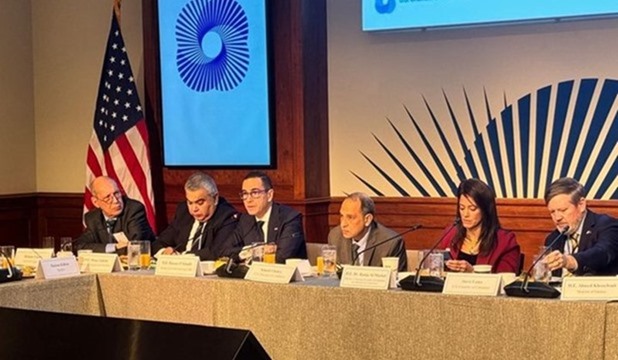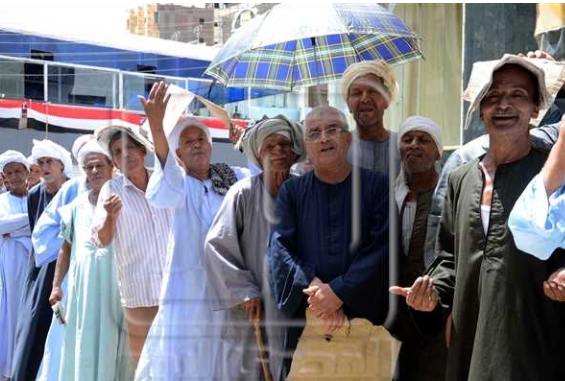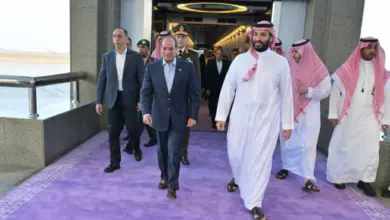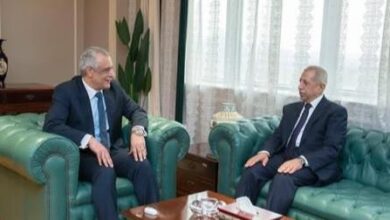
Minister of Investment and Foreign Trade Hassan al-Khatib said the Egyptian government is working on a strategy to improve the investment climate, citing the introduction of monetary, financial and tax reforms to facilitate investment measures and remove obstacles facing local and foreign investors in Egypt.
Khatib made his remarks in an expanded meeting with members of the US Chamber of Commerce and the US-Egypt Business Council (USEBC), in the presence of Minister of Planning, Economic Development and International Cooperation Rania el Mashat, Finance Minister Ahmed Kouchouk and Egypt’s Ambassador to the US Motaz Zahran.
The US side was represented by Khush Choksy, Senior Vice President for Middle East and Turkey Affairs at the chamber, Steve Lutes, Executive Director for Middle East Affairs at the chamber, and Hisham Fahmy, CEO of the American Chamber of Commerce in Egypt.
The investment minister reviewed investment opportunities available in Egypt and the State’s efforts to provide a promising investment environment.
Khatib added the State seeks to increase investments, enhance production rates and raise the volume of Egyptian exports to foreign markets, as well as creating an attractive and competitive business environment.
The minister stated Egypt enjoys a competitive advantage in labor-intensive industries, which helps the country to serve as a regional gateway for companies aiming to access African, GCC, European and Latin American markets.
Khatib noted his ministry targets boosting Egyptian exports, by adopting an open trade policy and improving Egypt’s trade competitiveness, in addition to taking steps to simplify customs release procedures.
The minister highlighted the significant shift in supply chains, as Egypt has become an attractive destination for investments coming from Asia and Europe.
Khatib said Egypt has become a more attractive destination for investment after the recent devaluation of the local currency, with the availability of skilled labor and good infrastructure.
The minister underlined the important role of digital technology in improving customs procedures and simplifying business operations.
Khatib emphasized the government’s commitment to expanding renewable energy projects, especially solar energy and green hydrogen projects, as part of its strategy for green transformation.




